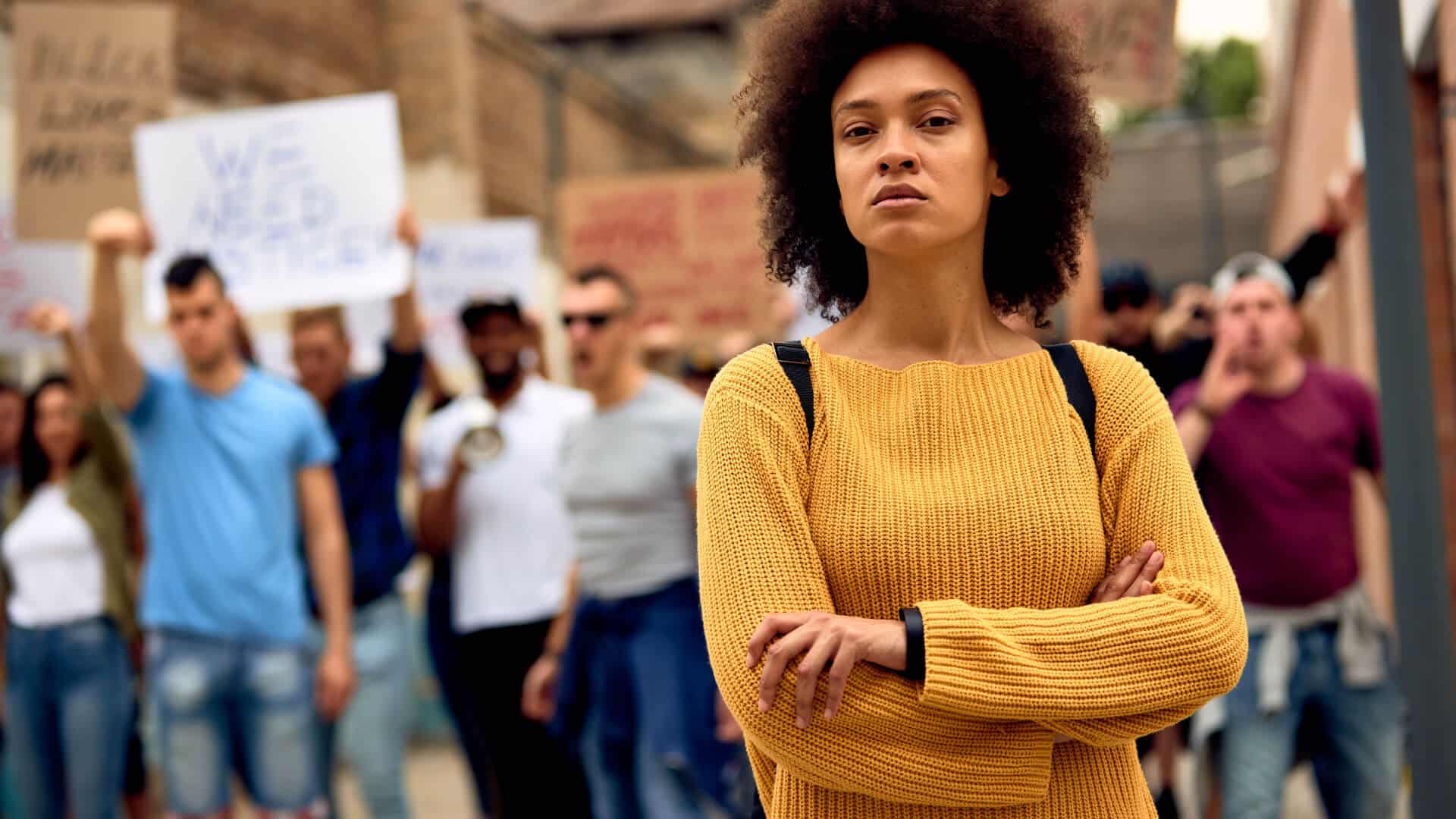Know Your Civil Right to Assemble in the United States
The United States Constitution guarantees American citizens several freedoms. One of them is our right to assembly, as the Founding Fathers did in leading into the American Revolution. It was realized then that American citizens should be able to come together to protest issues happening in the country.
This civil right is one of the most utilized around the country as of late, but many seemed confused as to what counts as assembly, and what people are allowed to do during an assembly. If you are unsure of how you can utilize your freedom of assembly, and what protections you have as you do so, the civil rights attorneys at Barrett & Farahany can help.
What is the Right to Freedom of Assembly?
Freedom of assembly right allows citizens to gather for peaceful purposes, including:
- Protests
- Demonstrations
- Rallies
- Work strike
- Other forms of collective expression
This right is protected under the First Amendment to the Constitution.
What Should Every American Citizen Know About the Right to Protest?
If you’re planning to utilize your right to assemble with your peers, there are some things you should know to protect yourself and your civil rights.
- Constitutional Basis for Assembly: To be clear, the First Amendment explicitly states, “Congress shall make no law … abridging … the right of the people peaceably to assemble, and to petition the Government for a redress of grievances.”
- Scope of the Constitution: The Constitution covers gatherings in public spaces, such as streets, parks, and public squares. It does not extend to private property, but if you are granted permission, you can assemble on private property. This right is limited to certain restrictions, particularly regarding time, place, and manner, to ensure public safety and order. If you have permission to assemble on private property, you are beholden to the property owner’s rules, and any building regulations.
- Peaceful Assembly: The right protects only peaceful assemblies. Violent gatherings or those that incite violence can be regulated or dispersed by law enforcement. If others attempt to incite violence against you, you have the right to defend yourself. In this instance, you will most likely need to prove that you were threatened in a court of law.
- Permits and Regulations: Your local government can require permits for large gatherings to ensure public order, particularly in public spaces that can be reserved. The process and criteria for issuing these permits must be fair and not used to suppress speech, or your local government is liable for litigation.
- Judicial Interpretation: The U.S. Supreme Court has upheld the importance of freedom of assembly through various rulings, but these rulings are subject to change. The Supreme Court can reverse or override previous rulings in the future as their members change.
The freedom of assembly is vital for allowing citizens to collectively express their views, advocate for causes, and participate in the democratic process.
When Do Citizens Utilize Their Freedom of Assembly?
To elaborate, the different mentioned forms of public assembly are usually meant to target specific issues and topics. For example:
- Protests and demonstrations are commonly where citizens gather to protest governmental policies, social injustices, or other issues of public concern.
- Rallies and marches are organized events that support a cause, celebrate cultural or political milestones, or advocate for change.
- Public meetings are community or town hall meetings where citizens discuss local issues and engage with public officials and their local representatives.
- Vigils and sit-ins are peaceful gatherings to honor individuals or draw attention to specific causes.
These were commonly utilized to combat or raise awareness for issues in the past like:
- Civil Rights Movements: The Civil Rights Movement held large-scale demonstrations and marches to advocate for racial equality.
- Environmental Protests: Those trying to raise awareness about climate change have been organizing gatherings to draw attention to the issue for decades.
- Labor Strikes: The U.S. has had several famous labor strikes that stopped production and affected major businesses. Workers assembled to demand better working conditions or wages.
Contact the Civil Rights Attorneys at Barrett & Farahany For Help
Civil rights violations cannot be ignored. An attack on the right to assemble is only the first of many violations to come. If you were peacefully and rightfully using your right to assembly, and it was stopped, you should not stand for it.
Our civil rights attorneys can review your case and suggest various legal remedies available for those whose civil rights have been violated, such as monetary damages.
Don’t wait. Contact us as soon as possible to defend your right to assemble and get the justice you deserve.


